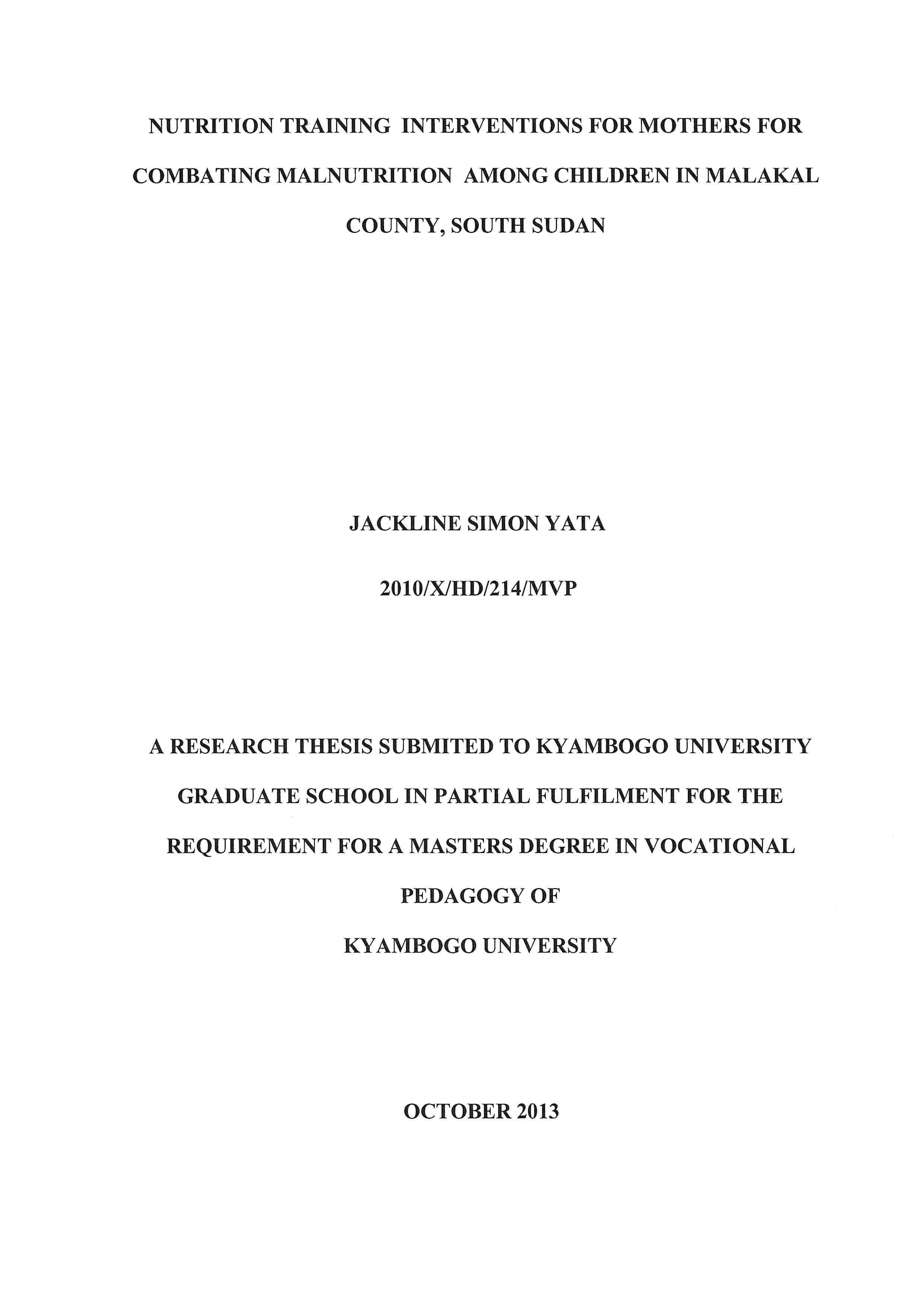Women and salt mining at Kibiro salt gardens in Hoima district (1894-2015)
Abstract
The purpose of the study was to examine the factors that explain women participation in salt mining at Kibiro salt gardens and how Kibiro's geographical setting acted as a basis for discerning factors underlying salt mining and challenges faced in this mining between 1894-2015. The study was motivated by the observation that while Kibiro's salt mining was not new in historical discourse, attention had largely been on its process and its archaeological explanations.
Thus not much attention had been paid to the factors that explain why it was only women who engaged in Kibiro salt mining. The study also intended to identify the benefits and challenges faced and how the challenges were dealt with. The study was guided by four specific objectives that were: to explain Kibiro's geographical setting as a basis for discerning the factors favouring salt mining; to examine women in salt mining during the pre-colonial period; to analyse continuities and changes for women salt mining in Kibiro during the colonial period; to examine the state of women in salt mining at Kibiro during the post-colonial period. The study utilised a qualitative approach. Data were collected using documentary review, observation and face-toface oral interviews guided by an interview guide. The snowball sampling method was used to identify key infonnants who then directed the researcher to other knowledgeable infonnants. Data were analysed using documentary analysis and narrative techniques. The results reveal that women's exclusive role in salt mining can be traced from the pre-colonial period and it is deeply rooted in the Bakibiro cultural fabric. This breaks the established narrative which suggested that women did not play a key role in pre-colonial societies. The study was also guided by the liberal feminist theory of gender.

